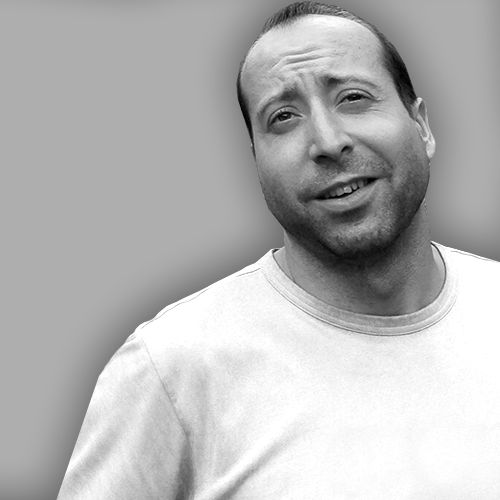OpenBazaar was supposed to take the online retail business by storm. Almost three years after its launch, however, the decentralized marketplace looks more like a ghost town. What went wrong?
The seizure of the darknet market Silk Road — along with the arrest of its founder, Ross Ulbricht, in 2013 — created a gap that needed to be filled.
Less than one year later, at a Bitcoin Hackathon in Toronto, a group of developers led by Amir Taaki presented ‘DarkMarket’, a unique prototype of a decentralized marketplace. Taaki didn’t have any plans to take the project forward. Therefore, another member of the ‘DarkMarket’ developing team stepped in and took the matter into his own hands.
It was a real grind for Brian Hoffman and after a failed release in 2014. He rebuilt the code entirely and created OpenBazaar. The newly revamped project launched on April 4, 2016, and was designed to replace centralized market places like Amazon and eBay by offering users a platform that charged no fees, had no restrictions, and where they could pay in Bitcoin (BTC).
Almost three years later and after receiving millions through VC funding, the project has yet to deliver on its promise.
Hoffman managed to raise over $4.3 million from three rounds of funding while aiming to give the power back to the users by connecting them directly. All users had to do is download the OpenBazaar client program, create a product listing, and they were good to go — if they wanted to be sellers. For the buyers, the process was even simpler: access the OpenBazaar website, look for their desired products, and hit the buy button.

What Went Wrong?
Unfortunately for Hoffman and the team behind the decentralized marketplace, the reality was far from what they actually imagined. Leading retail businesses such as Amazon and eBay offer their potential buyers and sellers convenience, first and foremost. A seller, for example, can set up his or her own store with just a few clicks and without much fuss. In OpenBazaar’s case, the seller has to keep his or her computer online close to 24/7 — or, at least, have visitors check the store on a daily basis. If the seller is at the start of his/her journey and doesn’t have any visitors, his/her store won’t be visible to customers once it’s offline. This lack of convenience compared to the mainstream solutions drives away traffic. Traffic is essential to every online marketplace. Without visitors, there aren’t many potential buyers. Without buyers, sellers will eventually be discouraged and close up shop. Indeed, this is a vicious circle that turned OpenBazaar into a ghost town. Furthermore, the current cryptocurrency market sentiment didn’t help the platform at all. Besides Bitcoin’s price volatility hampering adoption as an actual currency, most Bitcoin maximalists now promote the number one cryptocurrency as a store of value. The same goes for the altcoins, with most users interested in HODLing and long-term speculation rather than spend-ability. With such narratives dominating the cryptocurrency landscape, it seems that projects like OpenBazaar are destined to fail.
With such narratives dominating the cryptocurrency landscape, it seems that projects like OpenBazaar are destined to fail.
Can OpenBazaar Be Saved?
The developers of the decentralized marketplace can be accused of coming up with a mediocre product, but we have to acknowledge the fact that the platform has also encountered many problems since launch. In a blog posted in late 2017, leading developer Brian Hoffman listed some of the issues — including one of the founders leaving, having to scrap all their P2P code and switch languages from Python to Go, users having trouble installing the software, plus a lack of support from the Bitcoin community. OpenBazaar co-founder Sam Peterson also talked about the need for patience. Amazon and eBay had decades to build their current intuitive platform and OpenBazaar will probably need several more years before it can even compare with those two. Already, the team behind the platform developed features meant to improve the overall user experience, from tools keeping the store visible even if the client is not running, to store setups in less than a minute. These improvements are more than welcomed but, to truly reach mass adoption, the decentralized marketplace needs to find its own niche first. Which niche it will be — homemade merchandise, homesteading, farming — it remains to be seen. Do you still believe OpenBazaar can go on to replace the likes of Amazon and eBay or is the project doomed to fail? Share your thoughts in the comment section below.Disclaimer
In adherence to the Trust Project guidelines, BeInCrypto is committed to unbiased, transparent reporting. This news article aims to provide accurate, timely information. However, readers are advised to verify facts independently and consult with a professional before making any decisions based on this content. Please note that our Terms and Conditions, Privacy Policy, and Disclaimers have been updated.

Florian Gheorghe
I started out in print journalism in 2008 and switched to freelancing two years later. Afterward, I covered the poker and gambling scene for several years before getting into sports and motivational stories.
Crypto-wise, I first learned about Bitcoin just months after the Mt. Gox event. I’ve been riding the bulls and the bears ever since.
I started out in print journalism in 2008 and switched to freelancing two years later. Afterward, I covered the poker and gambling scene for several years before getting into sports and motivational stories.
Crypto-wise, I first learned about Bitcoin just months after the Mt. Gox event. I’ve been riding the bulls and the bears ever since.
READ FULL BIO
Sponsored
Sponsored

